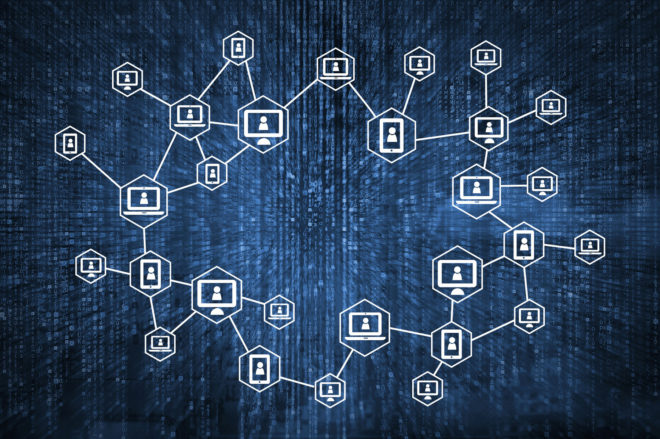Introduction
In the past two years, India has witnessed a staggering number of cybersecurity incidents, with over 28 lakh incidents reported to the Indian Computer Emergency Response Team (CERT-In). These incidents range from phishing attacks and malware infections to data breaches and ransomware attacks. As the country becomes more digitized, these incidents are likely to become more frequent and more severe, posing a significant threat to India’s economy and national security. In this blog post, we will examine the reasons behind the increase in cybersecurity incidents, the impact they have had on the Indian economy, and what steps can be taken to prevent them in the future.
Important Points
- The number of cybersecurity incidents reported to CERT-In has increased significantly in the past two years, with over 28 lakh incidents reported between January 2019 and December 2020.
- The most common types of incidents reported include phishing attacks, malware infections, and website intrusions.
- Small and medium-sized businesses are particularly vulnerable to these attacks due to a lack of cybersecurity awareness and resources.
- The COVID-19 pandemic has exacerbated the situation, with cybercriminals exploiting the increased reliance on remote working and online transactions.
- The economic impact of these incidents is significant, with losses running into billions of dollars.
FAQ’s :
What is CERT-In, and what role does it play in cybersecurity?
CERT-In stands for the Indian Computer Emergency Response Team and is the national agency responsible for dealing with cybersecurity incidents in India. Its role is to collect, analyze, and disseminate information on cybersecurity incidents and provide support to government agencies, businesses, and individuals to prevent and mitigate cyber attacks.
What are some common cybersecurity threats faced by businesses in India?
Some common cybersecurity threats faced by businesses in India include phishing attacks, malware infections, website intrusions, ransomware attacks, and social engineering attacks.
What steps can businesses take to improve their cybersecurity posture?
Businesses can take several steps to improve their cybersecurity posture, including implementing strong passwords and two-factor authentication, keeping software and operating systems up to date, conducting regular cybersecurity training for employees, and investing in cybersecurity tools such as firewalls and antivirus software.
What are some recent examples of high-profile cybersecurity incidents in India?
In 2020, the Indian Premier League (IPL) suffered a data breach, and several high-profile Twitter accounts were hacked. In 2021, the Indian government’s vaccination registration website was hacked, and personal information of millions of citizens was reportedly leaked.
How do cybercriminals typically gain access to systems and networks?
Cybercriminals use a variety of techniques to gain access to systems and networks, including phishing attacks, social engineering, malware infections, and exploiting vulnerabilities in software and systems.
What can individuals do to protect themselves from cyber attacks?
Individuals can take several steps to protect themselves from cyber attacks, including using strong passwords, enabling two-factor authentication, being cautious about clicking on links or downloading attachments from unknown sources, and keeping software and operating systems up to date.
What is the role of the government in preventing and mitigating cyber attacks?
The government plays a crucial role in preventing and mitigating cyber attacks by raising awareness about cybersecurity, providing support to businesses and individuals to prevent and mitigate cyber attacks, and investing in cybersecurity infrastructure to protect critical infrastructure systems.
Pros
- Increased cybersecurity awareness: The increase in cybersecurity incidents has raised awareness about the importance of cybersecurity among businesses and individuals in India. This has led to increased investment in cybersecurity tools and training and a more proactive approach to cybersecurity.
- Job opportunities: The rise in cybersecurity incidents has led to increased demand for cybersecurity professionals, creating job opportunities in this field.
- Improved cybersecurity posture: The increase in cybersecurity incidents has forced businesses to take a more proactive approach to cybersecurity, which has resulted in improved cybersecurity posture and a better-prepared workforce.
Cons
- Economic impact: The economic impact of cybersecurity incidents can be significant, with losses running into billions of dollars. This can have a negative impact on businesses and the economy as a whole.
- Lack of cybersecurity resources: Small and medium-sized businesses may not have the resources to invest in robust cybersecurity measures, making them more vulnerable to cyber attacks.
- Sophisticated attacks: Cybercriminals are becoming increasingly sophisticated in their attacks, making it more challenging to detect and prevent attacks.
Final Conclusion
The increase in cybersecurity incidents in India is a cause for concern, and steps must be taken to prevent them from occurring in the future. Businesses must take a proactive approach to cybersecurity by investing in cybersecurity tools, conducting regular training for employees, and keeping software and operating systems up to date. The government must also play a role in raising awareness about cybersecurity and providing support to businesses and individuals to prevent and mitigate cyber attacks. Ultimately, cybersecurity is everyone’s responsibility, and we must all work together to ensure that our digital infrastructure remains secure additionally, individuals must also take steps to protect themselves online by using strong passwords, enabling two-factor authentication, and being cautious about clicking on links or downloading attachments from unknown sources.
The impact of cybersecurity incidents goes beyond financial losses and can have significant consequences for national security. Cybercriminals can exploit vulnerabilities in critical infrastructure systems, such as energy and transportation, to cause disruption and damage. It is, therefore, crucial that businesses and government agencies work together to identify and mitigate potential threats.
The COVID-19 pandemic has also highlighted the need for a more robust cybersecurity infrastructure. The shift towards remote working and online transactions has created new opportunities for cybercriminals to exploit vulnerabilities in systems. It is essential to address these vulnerabilities and ensure that remote working environments are secure to prevent potential cyber attacks.



